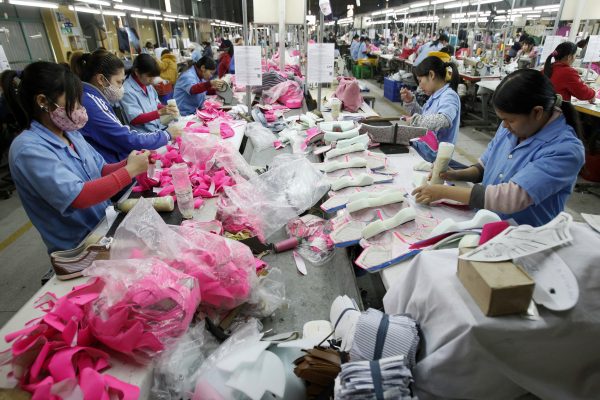By law, both employers and employees must contribute to employees’ social insurance premiums, which pays for pensions and other benefits such as maternity leave. One of the conditions in which employees can claim their social insurance premium as a lump sum is when they quit their job and stop contributing to the social insurance fund for one year.
Since the 2010s, increasing numbers of employees have lodged claims for the lump sum payment under this condition. As the pension is a key pillar of social insurance, more people choosing to opt out of the system will put a greater burden on the state to provide care and support for these people in their old age.
In a recent report to the National Assembly about the revised draft law, the government acknowledged the significance and complexity of early withdrawals. The dilemma is how to effectively reduce the number of early withdrawals in the coming years without causing discontent among the workers. The government would not want to repeat what happened to the revised law in 2014, which led to protests among thousands of workers and failed to take effect.
The draft law proposes several measures to limit early withdrawals and keep more people in the social insurance system for longer. One of these measures limits the amount of money that a person can withdraw early to 50 per cent of their total contributions, with the rest remaining in the social insurance fund managed by the state.
As the state increasingly opens the space for public engagement with law and policy issues, citizens have keenly taken up the opportunity to raise their voices.
During public consultation and debates about the draft law, many opinions have supported employees’ ‘right to decide’ on their social insurance benefits. This argument acknowledges that employees often view their social insurance contributions as their personal savings, which they believe they are entitled to when in need.
The argument is premised on the precarious living and working conditions of factory workers employed in export sectors such as garments, footwear and other processing industries. Low wages and limited savings have pushed many into financial hardship when they lose their jobs — often as a consequence of disruptions and fluctuations in the global supply chain. As the assembly industries favour young people, many workers are forced to ‘retire’ in their 40s. They are also likely to pursue early withdrawal as they are unable to wait until their legal retirement age to receive the pension.
The state’s lack of transparency in the management of social insurance funds and the failure to punish businesses’ legal violations are also cited to support employees’ right to decide on their social insurance benefits.
The legal revision also aims at making pensions more attainable by lowering the minimum duration of contributions needed to receive a pension from 20 years to 15 years. Yet there is another challenge — the monthly pension allowance that a typical retired worker receives falls short of their living needs. This is due to their low incomes and relatively short periods of total employment, making it difficult for them to be eligible for the maximum rate of pension benefits.
Many have urged the government to consider more meaningful changes that would address these challenges, such as decreasing the legal retirement age for industrial workers, revising methods about calculating pension allowance and increasing benefits for social insurance participants.
These suggestions are unlikely to be taken on board, particularly as legal retirement ages fall within the scope of the Labour Code rather than the Law on Social Insurance. While increasing benefits for social insurance participants is in line with the broader agenda of social insurance reform, it is not a top priority of current legal reform.
As the draft law is scheduled for discussion in the upcoming session of the National Assembly, the number of lodgements for early withdrawals continues to rise. There have been reports of many workers resigning from their jobs so that they are able to claim the lump sum in 2024 before the new law comes into effect in 2025. Potential changes that will likely restrict early withdrawals have created a sense of uncertainty among workers, pushing them to claim the money while this is still allowed.
In debating social insurance issues, citizens have called attention to ongoing policy challenges and recommended changes that go beyond the scope of the revised draft law. Previous experience has shown that the Vietnamese government is relatively willing to accommodate citizens’ needs to maintain social stability. As social insurance law targets a large group of beneficiaries, the state will need to consider how accommodative it should be in balancing its objectives with the interests of its citizens.
Tu Phuong Nguyen is Adjunct Fellow at The University of Adelaide’s School of Social Sciences.

